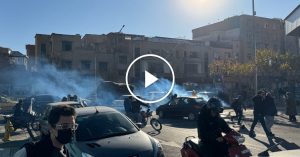The sudden suspension of President Yoon Suk Yeol’s powers thrust Prime Minister Han Duck-soo into the unexpected role of acting president, placing the reins of South Korea firmly in the hands of a seasoned bureaucrat with decades of experience but lacking a direct electoral mandate. This unprecedented shift in power comes at a particularly precarious juncture for the nation, as it grapples with a confluence of complex challenges both domestically and on the international stage. The transition, while constitutionally mandated, raises questions about political stability and leadership continuity at a time when decisive action and public confidence are paramount.
Han Duck-soo, a career civil servant with a distinguished record of service across various government ministries, including finance, trade, and prime ministerial roles under previous administrations, now faces the daunting task of navigating South Korea through turbulent waters. His extensive experience in policy-making and economic management provides a foundation of expertise, yet the absence of a popular mandate presents a unique set of challenges. He must not only address the immediate issues that precipitated the presidential suspension but also maintain stability and effectively manage the country’s complex affairs while operating under the constraints of an acting presidency. This delicate balancing act requires deft political maneuvering and the ability to build consensus across the political spectrum, a particularly arduous task given the polarized nature of South Korean politics.
Domestically, South Korea confronts a multitude of pressing concerns. A sluggish economy, burdened by rising inflation and a global economic slowdown, necessitates careful economic stewardship and potentially difficult policy choices. The ongoing struggle with income inequality and social polarization demands attention to address the root causes of these societal fissures and foster greater social cohesion. Furthermore, the ever-present threat from North Korea and the complex geopolitical dynamics of the region require a steady hand at the helm to ensure national security and maintain diplomatic equilibrium. The acting president must navigate these intricate domestic issues with limited political capital and the constant awareness that his tenure is temporary, adding another layer of complexity to an already challenging situation.
On the international front, South Korea faces an equally complex landscape. The ongoing war in Ukraine has destabilized global markets and further strained supply chains, impacting South Korea’s export-dependent economy. The rise of China and the evolving regional security architecture necessitate careful diplomatic maneuvering to balance South Korea’s relationship with its powerful neighbor and its longstanding alliance with the United States. Furthermore, the increasing interconnectedness of global challenges, including climate change, pandemics, and cybersecurity threats, requires international cooperation and diplomatic engagement, demanding the acting president to maintain South Korea’s active role on the global stage despite the domestic political uncertainties.
Han Duck-soo’s leadership will be rigorously tested as he navigates these multifaceted challenges. His ability to garner support from across the political spectrum, effectively communicate his policies to the public, and maintain stability during this period of uncertainty will be crucial. The success of his interim leadership will depend on his ability to build bridges, foster consensus, and demonstrate a steady hand at the helm, inspiring confidence both domestically and internationally. He must walk a tightrope between maintaining the status quo and addressing pressing issues, all while acknowledging the temporary nature of his authority.
The suspension of President Yoon’s powers presents a significant test for South Korea’s democratic institutions. The ability of the system to ensure a smooth transition of power, maintain governmental stability, and address critical national issues during this interim period will be closely scrutinized both domestically and internationally. The effectiveness of the acting president’s leadership, the responsiveness of governmental institutions, and the resilience of South Korean society will all play crucial roles in determining the long-term impact of this unprecedented political development. The situation underscores the importance of robust democratic processes, clear lines of succession, and the ability of institutions to function effectively even under extraordinary circumstances. The true measure of South Korea’s political maturity will be its ability to navigate this challenging period and emerge stronger, reaffirming the strength and resilience of its democratic foundations.










